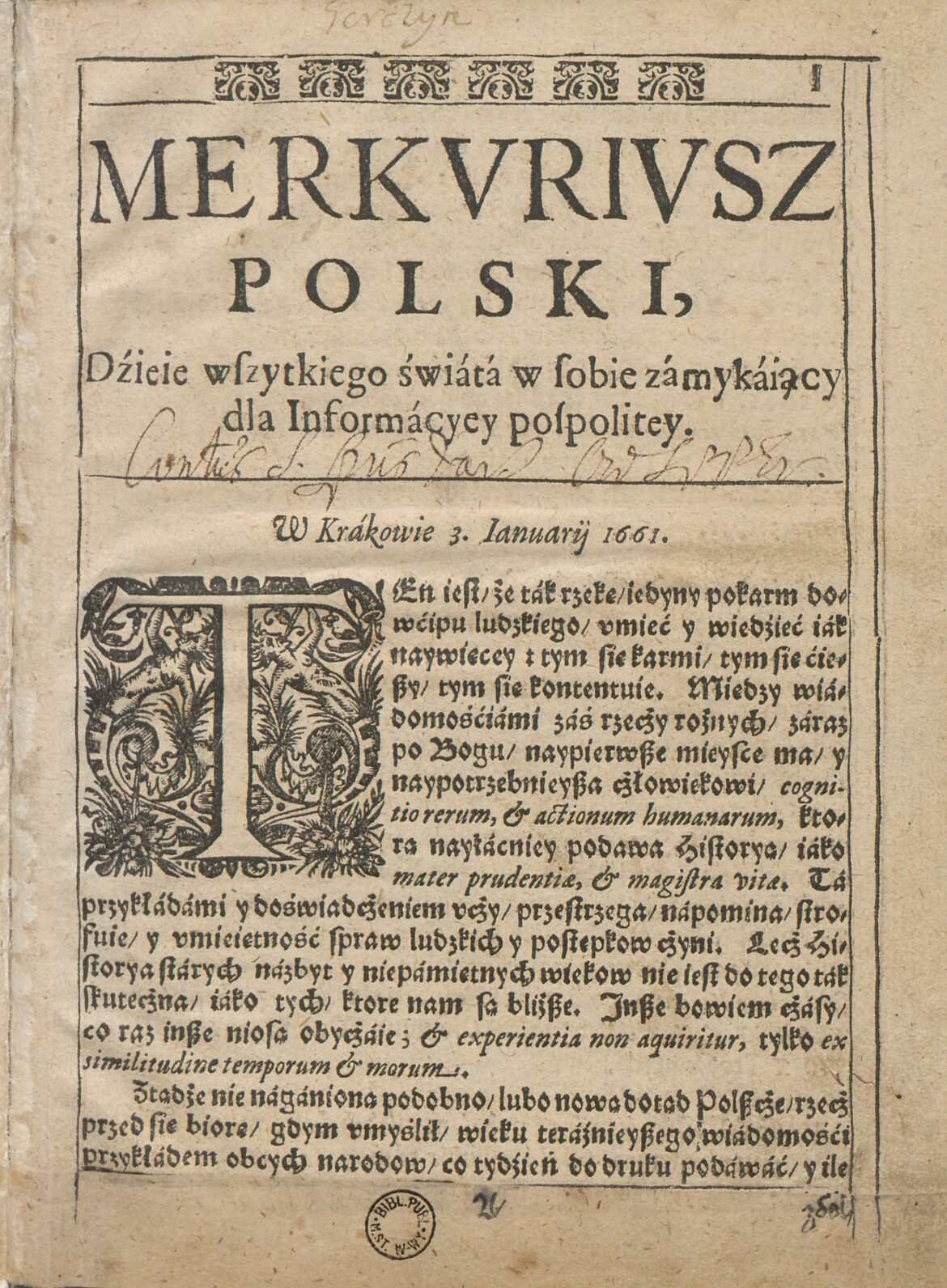“Merkuriusz Polski Ordynaryjny”, the first Polish periodical newspaper, debuted on 3 January 1661, opening the history of the Polish press. The timing of its appearance was not accidental – it occurred after the Swedish Deluge, during the period of stabilisation of the situation in the Polish-Lithuanian Commonwealth, i.e. the joint Polish-Lithuanian state.
The establishment of the ‘Merkuriusz’ was an initiative aimed primarily at supporting the political aspirations of King John Casimir Vasa, including the idea of vivente rege election, i.e. the election of a king made during the life of the previous ruler. The newspaper also offered a mixture of serious political information and lighter content, such as trivia and gossip.
The origins of the Polish press can be traced back to the 16th and 17th centuries when ephemeral prints were the main methods of disseminating information. The task of editing the “Merkuriusz” was taken on by the Italian Hieronim Pinocci, royal secretary, and printing was prepared by Jan Aleksander Gorczyna, a pioneer of Polish printing. Magazine’s circulation ranged from 100 to 250 copies, and the content was also read outside Poland.
“Merkuriusz Polski Ordynaryjny” was not only a witness to, but also a participant in key changes in the country. Its existence, although short (the last issue was published on 22 July 1661), laid the foundation for the development of Polish periodicals. It contained information on court life, current political events, and the situation on the battlefields. It was also the first newspaper in the world that aimed to convince the public of a specific political programme.
The name ‘Mercurius’ referred to the Roman god Mercury, patron of merchants and couriers, which emphasised the newspaper’s role as an information medium.
The title reappeared in the Polish press between 1933 and 1939 as a political weekly.





